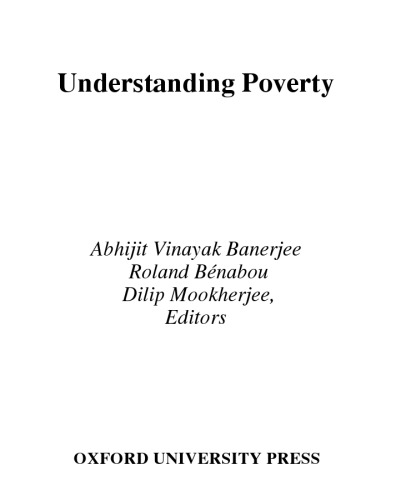

Most ebook files are in PDF format, so you can easily read them using various software such as Foxit Reader or directly on the Google Chrome browser.
Some ebook files are released by publishers in other formats such as .awz, .mobi, .epub, .fb2, etc. You may need to install specific software to read these formats on mobile/PC, such as Calibre.
Please read the tutorial at this link: https://ebookbell.com/faq
We offer FREE conversion to the popular formats you request; however, this may take some time. Therefore, right after payment, please email us, and we will try to provide the service as quickly as possible.
For some exceptional file formats or broken links (if any), please refrain from opening any disputes. Instead, email us first, and we will try to assist within a maximum of 6 hours.
EbookBell Team

4.3
28 reviewsUnderstanding poverty and what to do about it, is perhaps the central concern of all of economics. Yet the lay public almost never gets to hear what leading professional economists have to say about it.
This volume brings together twenty-eight essays by some of the world leaders in the field who were invited to tell the lay reader about the most important things they have learned from their research that relate to poverty. The essays cover a wide array of topics: the first essay is about how poverty gets measured. The next section is about the causes of poverty and its persistence, and the ideas range from the impact of colonialism and globalization to the problems of "excessive" population growth, corruption and ethnic conflict. The next section is about policy: how should we fight poverty? The essays discuss how to get drug companies to produce more vaccines for the diseases of The final section is about where the puzzles lie: what are the most important anomalies, the big gaps in the way economists think about poverty? The essays talk about the puzzling reluctance of Kenyan farmers to fertilizers, the enduring power of social relationships in economic transactions in developing countries and the need to understand where aspirations come from, and much else. Every essay is written with the aim of presenting the latest and the most sophisticated in economics without any recourse to jargon or technical language.
the poor, what we should and should not expect from micro-credit, what we should do about child labor, how to design welfare policies that work better and a host of other topics.